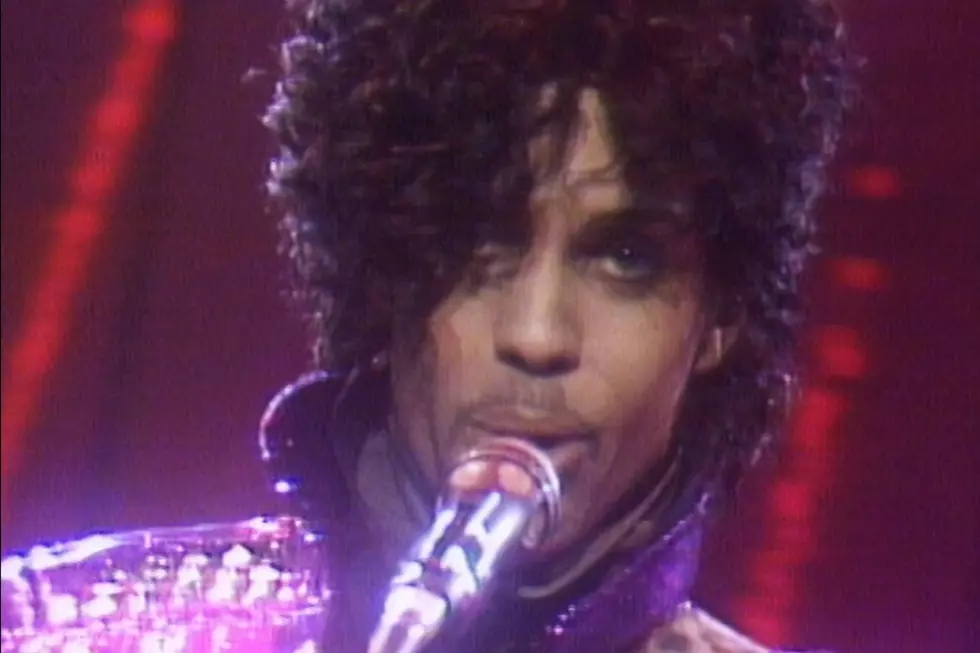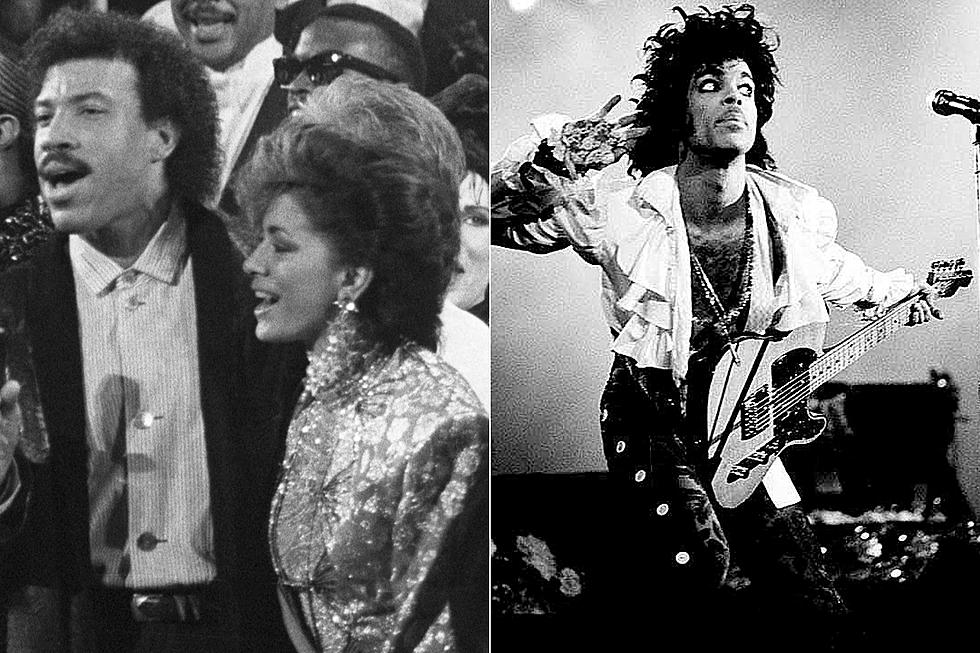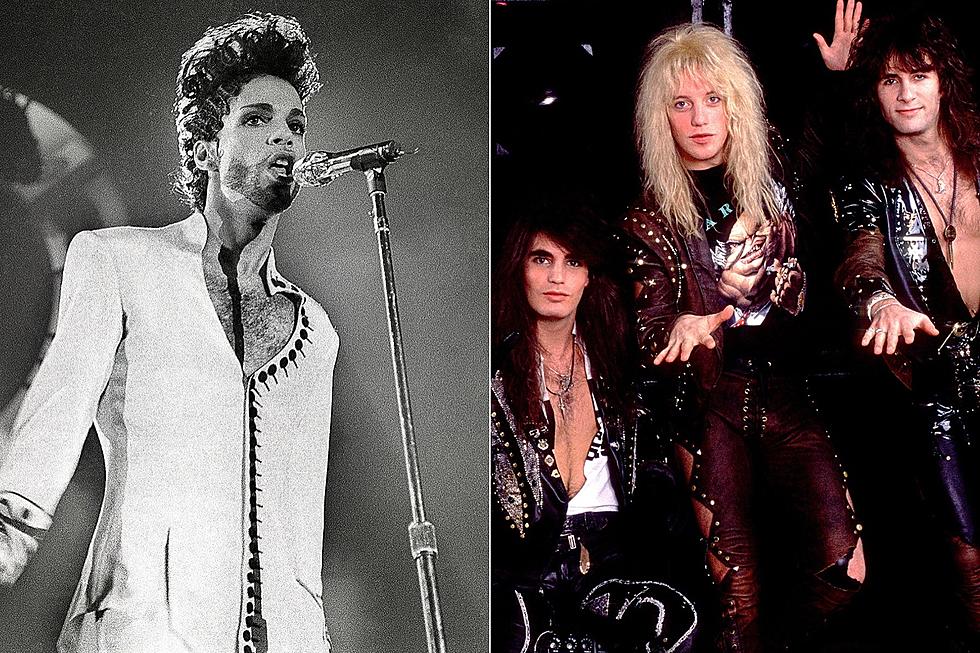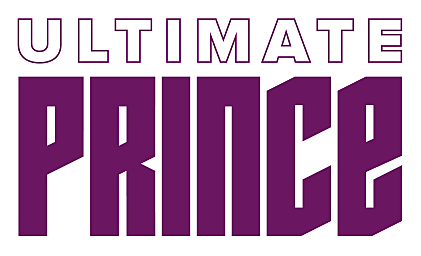
How ‘1999’ Helped Prince Break Down Barriers at MTV
Prince became a legend by shattering conventional wisdom regarding musical genres. In similar fashion, the musician was able to push past racial stereotypes in December of 1982 when "1999" became his first song to be featured on MTV.
The MTV of 1982 looked very different than it does today. Not only did the network actually play music videos, their genre of choice was clearly rock. Yes, some pop artists occasionally appeared, but rap and hip-hop were yet to hit the mainstream, while country and R&B were virtually ignored by programmers. In addition, artists of color were rarely shown on the network, a decision that famously earned criticism from one of the era’s biggest acts.
In a 1983 interview with VJ Mark Goodman, David Bowie openly questioned why MTV eschewed African American artists. “I’m just floored by the fact that there’s so few black artists featured on (MTV),” Bowie admitted before asking Goodman why that was. “I think that we’re trying to move in that direction,” the VJ explained. “We want to play artists that seem to be doing music that fits into what we want to play for MTV.”
When Bowie noted that the only black artists’ music videos he saw on the network aired late at night, Goodman further clarified MTV’s programming. “We don’t have any kind of day-parting for anything, let alone a black artist day-parted out of what would be quote ‘prime time.’ We don’t have that.”
The impetus for such programming decisions has been hotly debated in the decades since. While some have accused the network of outright racism, former employees insist that wasn’t the case.
“MTV was originally designed to be a rock music channel,” Buzz Brindle, MTV’s former director of music programming, explained to Jet magazine in 2006. “It was difficult for MTV to find African American artists whose music fit the channel’s format that leaned toward rock at the outset.”
This is where Prince came in. Though his songs had pop sensibilities and undeniably catchy choruses, Prince clearly rocked, as evidenced by his emphatic guitar solos. Here was an African American artist who clearly connected with a white, rock-oriented viewership. MTV had to take notice
“The staff was ready for revolt,” former network executive Judy McGrath noted in the book I Want My MTV, explaining that employees began pushing internally for greater diversity in the videos. “The music department was the driver of the programming, but people in the halls were starting to rise up and say, ‘I get the format you want to follow, but this is incredible music and these are unbelievable artists.’”
Originally released in September of 1982, “1999” was the first single from Prince’s album of the same name. On Dec. 16 that year, it became his first song to get added to MTV. Though it marked a turning point in the icon’s career, it was not the immediate success one might imagine.
"1999"’s initial MTV run was limited, with the video put into light rotation, often relegated to off-peak day-parts. Still, it gave Prince his first taste of mainstream exposure, while also signaling MTV’s slowly changing attitude towards African American artists.
In March of 1983, Michael Jackson’s “Billie Jean” music video was added into heavy rotation at MTV. Its massive success marked a cultural shift. It was soon followed by Prince’s “Little Red Corvette,” which became the artist’s commercial breakthrough, peaking at No. 6 on the Billboard Hot 100. Prince was suddenly an MTV mainstay and the network’s influence was reflected by the singer’s changing fan base.
“(The 1999 Tour) was 90 percent black until ‘Little Red Corvette’ came out,” recalled former Prince keyboardist Monte Moir in the book Prince: A Pop Life. “All of a sudden it shifted, drastically. It got to be half and half, if not 60-40 white. By the end of that tour, depending on what city, you could see that real crossover was possible.”
"1999" was re-released as a single in 1983, this time climbing all the way to No. 12 on the Billboard Hot 100 chart. Its video also resurfaced at MTV, receiving considerable airtime.
Prince maintained a longstanding relationship with MTV over the course of his storied career. Famously guarded towards the press, the artist agreed to an interview with the network in 1985 (though billed as his first televised interview, it was actually his second after Prince’s brief conversation with Dick Clark in 1980). The Purple One also performed at several MTV Video Music Awards, including his famous butt-baring display in 1991.
Watch Prince's '1999' Video
Prince Magazine Ads Through the Years: 1978-2016
More From Ultimate Prince









